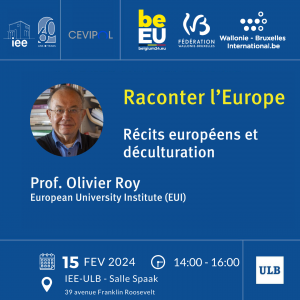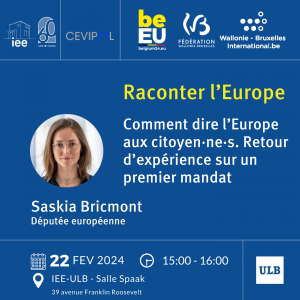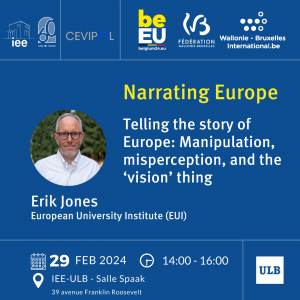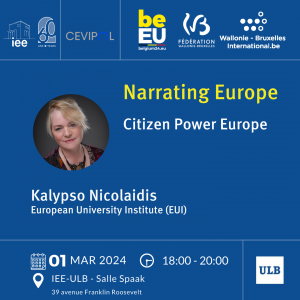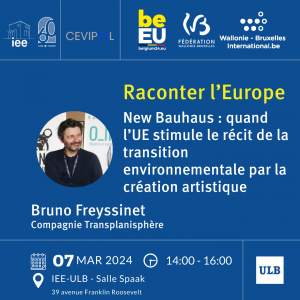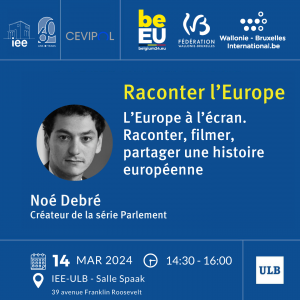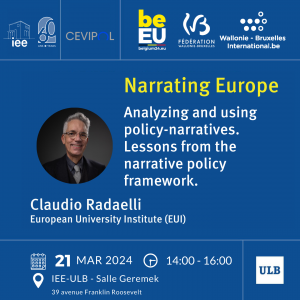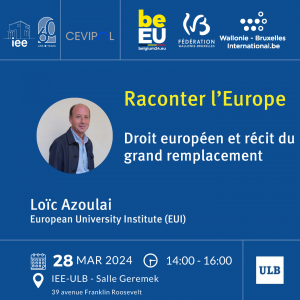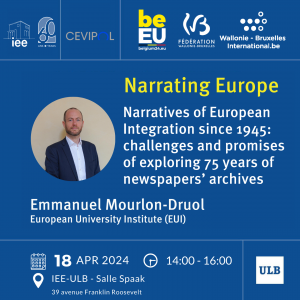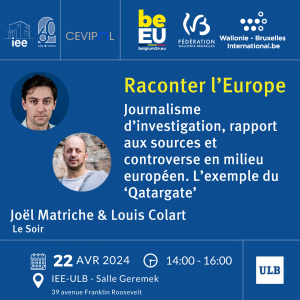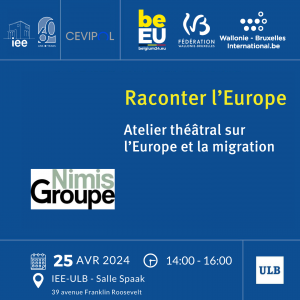Storytelling of European integration
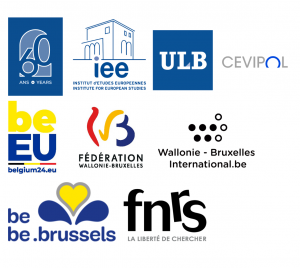
The IEE-ULB received a label and funding from the Belgian Presidency of the Council of the EU for the seminar «Raconter l’Europe / Narrating Europe» which will take place between February and April 2024.
The seminar “Narrating Europe” will explore the political, intellectual and artistic narratives of European integration. Coordinated by François Foret, it is part of the partnership agreement signed in 2023 by the European University Institute (EUI) and the ULB. It received a label « Culture » and funding from the Belgian Presidency of the Council of the EU and includes a media partnership with the newspaper Le Soir.
In practice the seminar is organized as an “open course” with ULB students and interested members of the wider public (EU practitioners, members of European civil society, journalists, citizens). Speakers include academics, politicians, journalists, and artists sharing their views about the production, circulation and reception of European narratives in various social sectors.
Activities will be held both in French and English, both languages being welcome in the discussion. All the sessions take place at the Institute for European studies, (IEE-ULB), 39 avenue Roosevelt, in one of the two conference rooms (Spaak or Geremek).
Programme of the seminar
The scope of the seminar
The ‘storytelling’ of European integration is an increasingly salient bone of contention in intellectual and political debates, to the extent that some refer to a ‘narrative turn’ in the legitimisation of the EU.
On the one hand, it highlights the efforts made by European institutions to develop policy and communicative narratives that are effective, attractive and compatible with democratic imperatives (particularly in terms of transparency, justice, accountability and sustainability). Still, despite constantly renewed versions, the advocacy for European integration seems to remain in a constant oscillation between two mainstream paradigms of justification: the ‘grand narrative’ inspired by the stato-national model; and a more utilitarian claim in terms of results and public goods offered to citizens by the EU policy-machine.
On the other hand, critical analyses highlight the elite-driven, abstract and technocratic dimensions of EU narratives. Doubts are expressed regarding the obsolescence of the notion of ‘narrative’ it itself in European societies characterised by political disenchantment and religious secularisation. Narratives are framed as shifting into ephemeral ‘stories’ told in an individual and frequently conflictual mode, particularly in the digital sphere.
A last challenge is to take into account the role of European narratives as outcomes, solutions or aggravations of multiples crises in EU governance, and the resistances, backlashes and counter-narratives that they may encounter. A pending question is the extent, meaning and effects of their politicisation.
This seminar aims to bring together different perspectives and disciplinary approaches (political sociology, public policy, political theory, comparative politics, international relations, law, history, arts) to address these issues. The EU is analysed as a multi-level governance system with a focus on the interactions between the national and the supranational. The main interest is in the internal dynamics of European politics, while taking into account the constant exchanges between the European and the global spheres.
